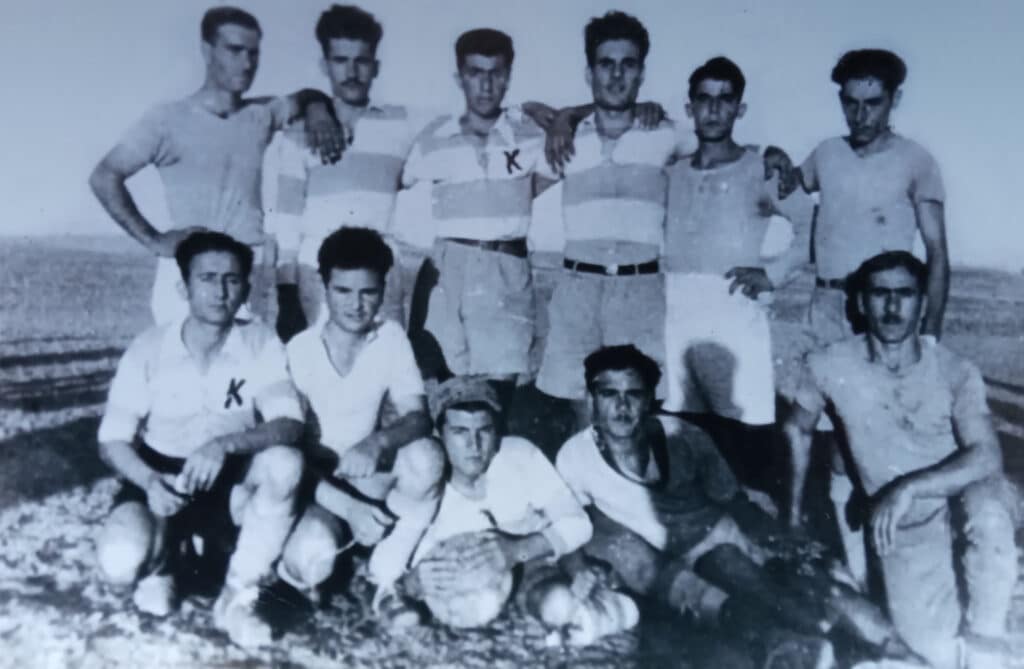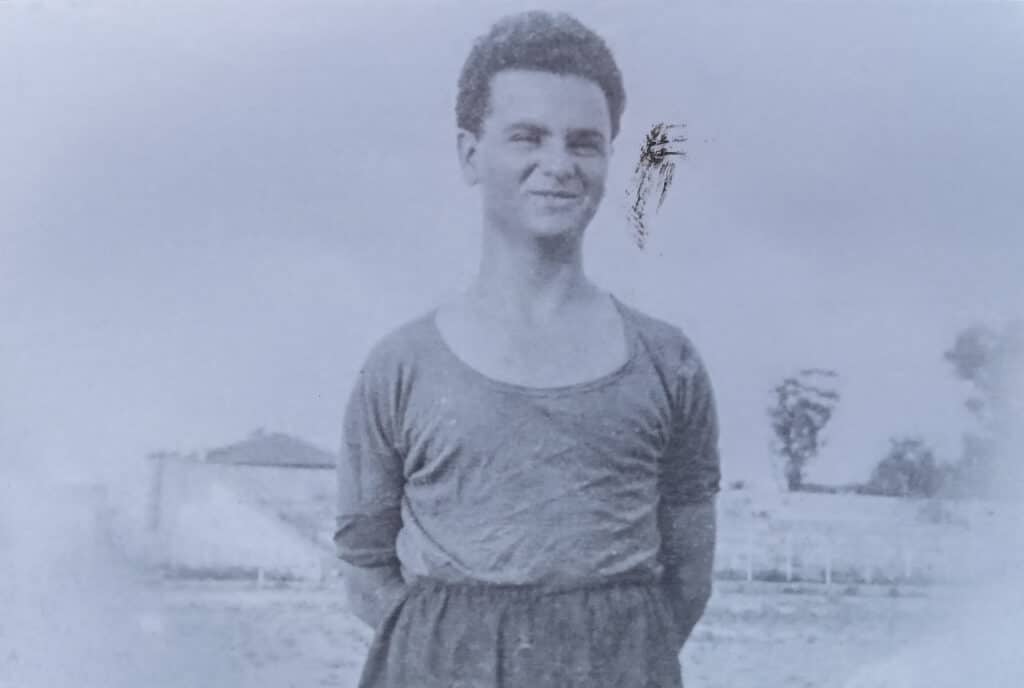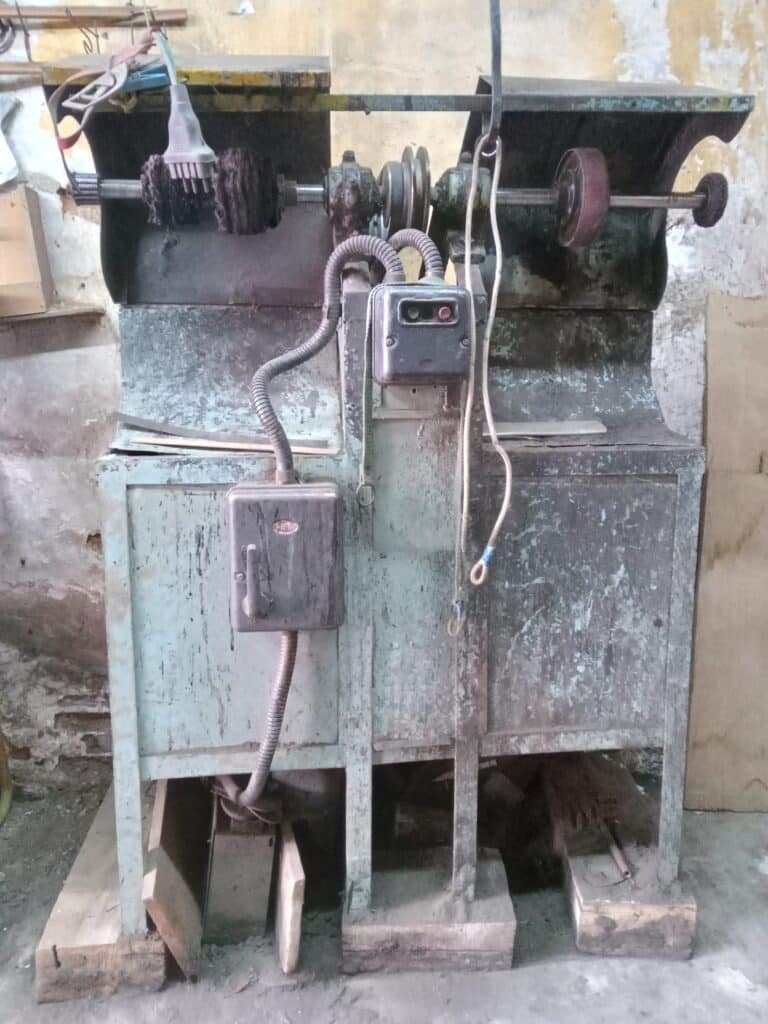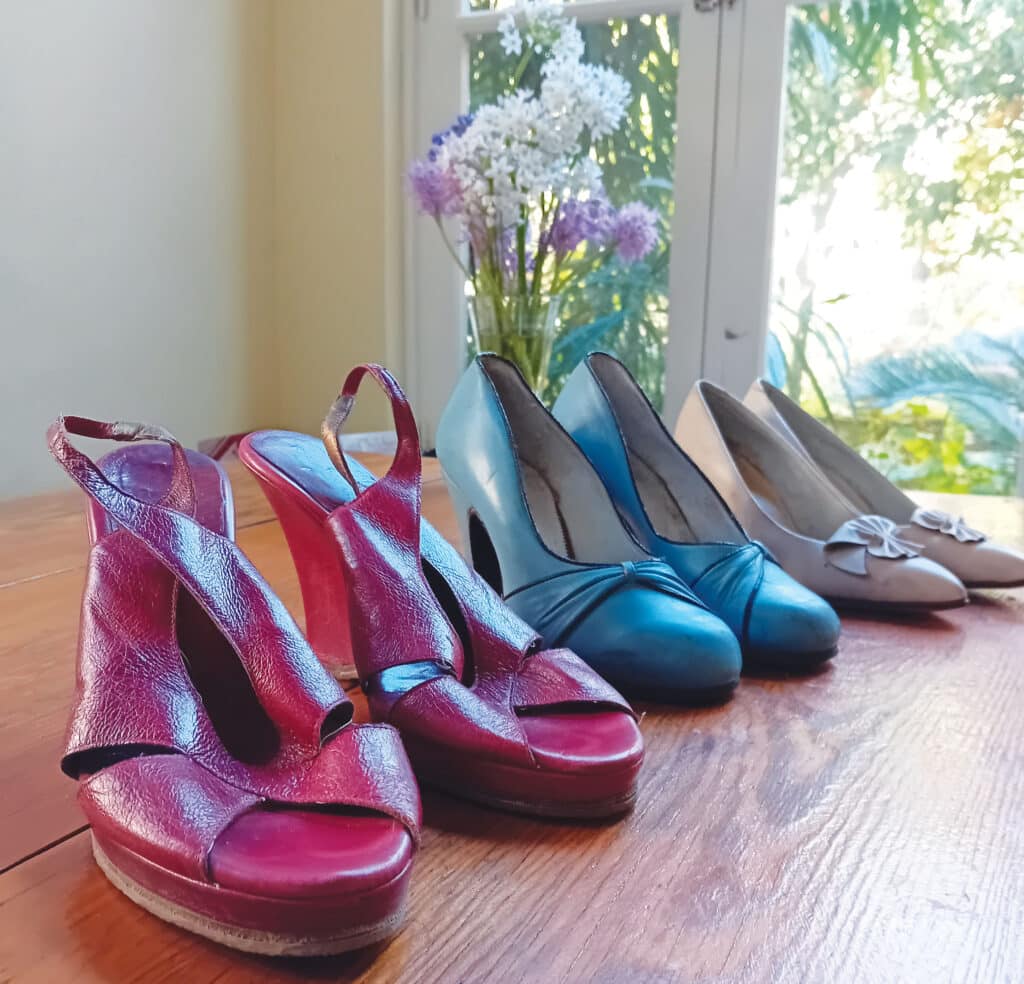
By Grace Theodoulou
One of Cyprus’ longest-serving craftsmen is closing his doors after more than 70 years of mending and making shoes. Andreas Vasiliou Trimboushis, is now in the process of decluttering his Dickensian workshop on 28a Patriarchou Grigoriou street in old Nicosia near the archbishopric as he prepares for retirement at the tender age of 95.
Walking into his dimly lit, cave-like workshop, customers have a mere 50 centimetres to weave through piles of shoes on either side, some in boxes and some loose, others hanging like bats from the ceiling alongside lasts and other early-industrial measuring tools.
He has been in the same workshop since 1953, which he opened when he was 24. Known in equal parts for his craftsmanship, gentlemanly manner and hearty chuckle, there are photos and video interviews with him on numerous Cypriot diaspora Facebook groups, where islanders from all over the world say they hope to see him again on their next visit.
They will be disappointed, After more than 70 years of being a cobbler, he has become increasingly short-sighted in recent months and is in the process of retiring.
So why is he still here? “The piles of shoes you see here, most are unclaimed. I’ve had them for decades and I wanted to give the owners a chance to collect them.”
Don’t be fooled by the clutter – over the decades he has also mastered the art of deftly plucking a shoe from the pile without causing a cascade.
“This one here, for example” he says, picking up a smart 1970s thick-wedge heel sandal, “underneath I have a sticker on it saying ‘Eleni’. Who on earth is Eleni?”
When I ask Andreas to tell me about his life, like many people I suppose, he reverts to the life-defining experiences of his youth. Andreas came to Nicosia from his native village of Ergates aged 13 to learn a trade and work. Upon finishing school, his father wanted him to become a farmer, but after his cumbersome handling of agricultural equipment, it became clear he had to look elsewhere to find his skill.
On a stroke of luck, a young fellow villager who worked with an uncle in Nicosia returned to Ergates one day. Hearing that Andreas was looking for work, he offered to show him the ropes, and off they rode to the big city, on the back of the friend’s bike. His first stint in the city saw him train as a tailor.
A young apprentice, his first ever home in Nicosia in 1942 was a room in his master’s home in Ayios Loucas, the picturesque parish now in the north, near Ayia Sofia mosque. Andreas has an abundance of happy memories from the neighbourhood.
Every day, he would take his master’s goat for feeding in the green by the moat outside the city walls. In the predominantly Turkish Cypriot neighborhood, Andreas didn’t speak Turkish.
“With the boys, this didn’t matter, we’d just kick a ball around, or a can, whatever we could use as a football.”

Chuckling, he remembers a group of Turkish Cypriot girls a few years older than him, affectionately teasing him in broken Cypriot Greek for being alone in a big city (“Baba eshei? Mama eshei?”) and playfully ruffling their hands through his thick mop of curls.
But he only managed to live 40 days in Ayios Loucas. One Sunday, his mum paid him a surprise visit and upon seeing him lugging cans of water back and forth between the nearest water fountain and his master’s house, feared he was being kept a slave and demanded he return home at once.
“The truth is,” Andreas says “I was treated as a bit of a servant. But I didn’t mind, I was learning a worthwhile trade. I tried explaining to her that other apprentices had it worse, but she had none of it. And so we returned – τίκκι τόκκο – two and a half hours on the donkey back to Ergates. We went back and found my dad feeding our ox and cow by the brook, (they’d run out of animal feed) and he said: ‘Times are hard, and money is tight, but I won’t have you living like that in the city. We’ll sort something out’.”
I ask him what his memories are of British rule. They are apolitical, but, rooted in his 11-year-old self, perhaps this is unsurprising.

“There were battalions of British soldiers in my village when I was growing up, I remember seeing some British Indians as well. They had training camps in various villages on the road to Machairas; they trained there before going off to fight abroad during the (Second World) war. Us kids were fascinated by these soldiers in training and we were too young anyway to understand the dynamics. Once, in 1940, we went up to them and they gave us these English biscuits to eat, with marmalade in the middle. We kept going back because they were so delicious.”
In 1943, he returned briefly to Nicosia to the same master, now living in Engomi, but after six months all workers were told to go home and come back when the war was over.
“There were no fabrics for us to work with, no leather for me to stitch; the war stopped all imports and no one was buying anything either.”
But during these few months, a craze for football flourished; on his bike ride from Engomi to the old town, he’d pass by the huge football field in Ayios Andreas (now the Nicosia municipal swimming pool) and watch the teams training. Within weeks, he was waking up at 5am to join them before starting work at 7am. Football would go on to become his veritable lifelong passion; by his 20s he had created his own left-wing team (AON). As soon as work finished, they would head down every day near the Olympiakos training field to play, having first cleared all the weeds by the Costanza bastion.
He returned to the city for the final time in 1946 to work in various shoe factories, where bizarrely, he moved into what is now my family home. He lived there until 1953, when he married. A total of 15 lodgers lived under the same roof, as was custom during that time. Many such large houses in old Nicosia were divided into rooms and rented out to apprentices and young professionals, mostly men, who came in from the villages to practise their craft. He fondly remembers hearing his roommate, a young student from Limassol, practising the violin and regrets having lost touch over the years.
Recalling the woman who also lived there as a type of property manager, his voice softens.
“Maria was like our mother. If we ever ran out of our own food she would cook for us, out of her own pocket. They were good years in that house. Such good years. You see, by then, I was older, more confident and with a proper wage. I still have dreams where I’m cycling around the streets, or where I’m putting my key in the front door of the house.”

During these years, he remembers other figures that bring the mid-20th century Cyprus to life. Where now stands Gefsasthai, a now closed lunchtime restaurant catering to local priests, there were once two small mud brick houses.
“I remember an old man living upstairs in one of them, with his unmarried daughter. They were poor. He rolled cigarettes for a living and rode around the city on his bike selling them, with a box strapped to his chest. The church knocked those houses down.”
By the age of 24 he decided it was time for him to work independent of a master, to help his marriage prospects (after working at shoe factories in his late teens, he returned as a cobbler’s apprentice to nail down his craftsmanship as a shoemaker).
“At our workshop near Phaneromeni church, I said to my boss: ‘It’s time I married and for that I need my own workshop. I like Loulla, the woman who often comes in with her sisters. I need her parents’ approval and as it stands, that will never happen – they will shoot me down with ‘Eisai tchirakkoui’.” As a tchirakkoui, a Cypriot word used to describe poor apprentices kept in slave-like conditions, Andreas would hardly make a desirable suitor.
Smiling fondly, Andreas recalls “That boss really cared for me. He helped me set up my own workshop (the one he currently runs) and I got the approval from her parents. We were married for 60 years.”
Loulla died 11 years ago and was part of the reason he still comes to work every day.
“What would I do at home all alone anyway?”

So what’s next for Andreas? After he has donated the last of the unclaimed shoes to the Red Cross, he plans to rest until he hopes to make the trip to England in May to his great-grandson’s christening. Incredibly proud of his three successful children and their subsequent offspring, among them an anaesthesiologist and an architect, his life is full.
The departure of yet another friendly fixture will be felt by old town residents and visitors alike, not least because people like him take with them a chapter of social history. I remember as a young girl passing by his shoemaker shop, where for a few years I managed to catch the veteran chairmaker and the church candlemaker who worked next door to him, always reminding me of a variation of that line in the old English nursery rhyme: Rub-a-dub-dub, Three men in a tub, And who do you think they be? The butcher, the baker, the candlestick maker, And all of them gone to sea.
But, new residents are moving in, both native and foreign, all who will contribute to the patchwork quilt of characters that make up the old town, or any neighbourhood really, if you dig deep enough – if they can stay even a quarter as long as Andreas.